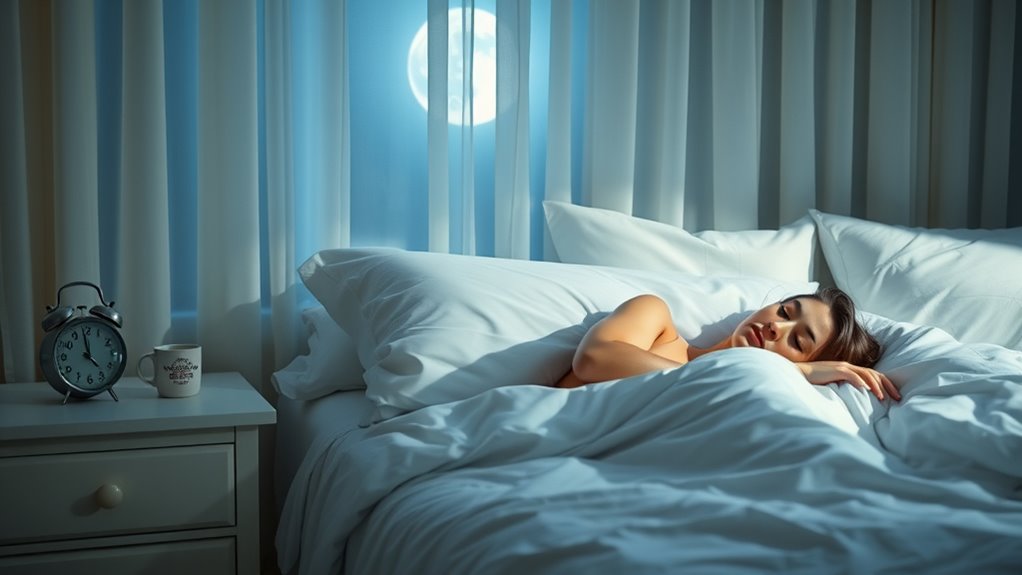Many sleep myths, like needing exactly eight hours or catching up on weekends, aren’t accurate. Your sleep needs vary based on age, genetics, and lifestyle, so focusing on feeling refreshed matters more than clock time. Supplements aren’t quick fixes, and oversleeping can be harmful. Sleep quality and consistency are vital for health, and conditions like snoring or sleep apnea shouldn’t be ignored. Keep exploring to uncover the truth behind these common misunderstandings.
Key Takeaways
- The “exactly 8 hours” sleep rule is a myth; individual needs vary based on age, genetics, and lifestyle.
- Relying on weekend catch-up sleep doesn’t fully compensate for chronic sleep deprivation or improve overall health.
- Being a night owl or morning lark is influenced by genetics but can be adjusted with routine changes.
- Sleep supplements often provide placebo effects; establishing healthy habits is more sustainable than quick fixes.
- Quality sleep matters more than duration; fragmented or poor-quality sleep can leave you unrefreshed regardless of hours slept.

WHOOP One – 12-Month Membership – 5.0 Health and Fitness Wearable – 24/7 Activity Tracker with VO2 Max, Sleep Tracking, Personalized Coaching, Menstrual Cycle Insights – 14+ Days Battery Life
EVERYTHING YOU NEED IS INCLUDED: Your WHOOP purchase includes a 12-month WHOOP One membership, a WHOOP 5.0 device,…
As an affiliate, we earn on qualifying purchases.
As an affiliate, we earn on qualifying purchases.
The Myth of the “Exactly Eight Hours” Rule
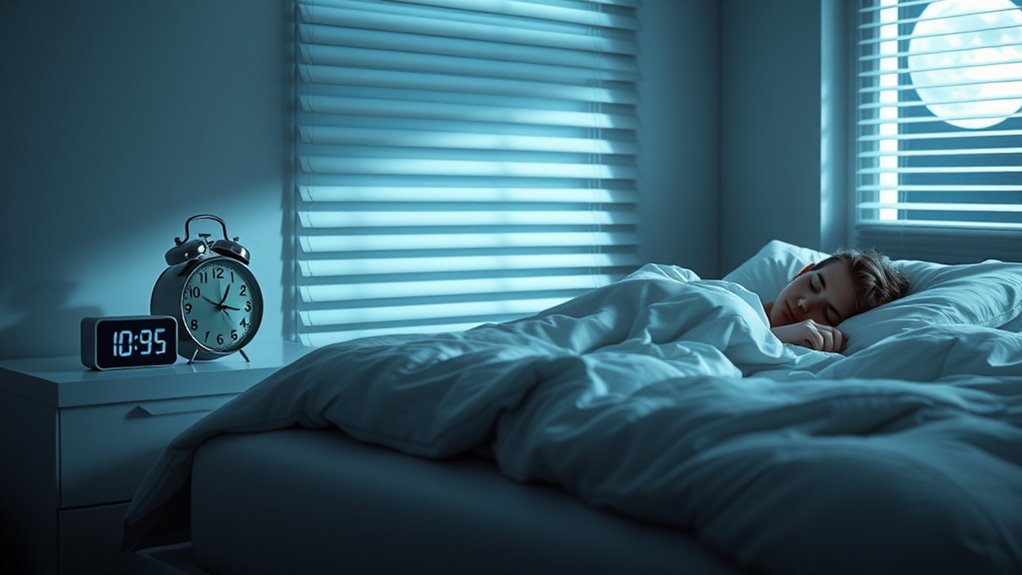
Have you ever believed that you must get exactly eight hours of sleep each night to be healthy? Many think there’s a strict sleep duration needed for ideal rest, but that’s a myth. Everyone’s sleep needs are different, influenced by age, lifestyle, and genetics. Some people feel refreshed with just six hours, while others need nine or more. The key is listening to your body and recognizing signs of tiredness or alertness during the day. Focusing solely on hitting eight hours can lead to unnecessary stress or sleep deprivation if that amount doesn’t suit you. Instead, aim for enough sleep that leaves you feeling energized and alert—your personal version of ideal rest. Sleep duration varies among individuals, and understanding your unique needs is essential for optimal health. Quality matters more than strictly adhering to a specific number.

EMAY Sleep Breathing Monitor for Airflow Tracking | Record Breathing Continuously On The App | Monitor Sleep Quality and Respiratory Events | Generate Professional Sleep Report with Data Analysis
As a home-use personal sleep monitor with breathing airflow recording capability, the device gives you an affordable and…
As an affiliate, we earn on qualifying purchases.
As an affiliate, we earn on qualifying purchases.
Can You “Catch Up” on Sleep Over the Weekend?

Many people believe that they can simply “catch up” on sleep during the weekends after a busy week. While weekend rest might help you feel temporarily restored, it doesn’t fully compensate for sleep loss. Your body needs consistent sleep recovery to function properly, and irregular sleep patterns can disrupt your circadian rhythm. Sleeping in on weekends might reduce some sleep debt, but it won’t undo the negative effects of chronic sleep deprivation. Instead, aim for regular sleep schedules throughout the week to maintain ideal rest. Relying on weekend catch-up sleep can create a cycle of sleep inconsistency, making it harder to feel truly rested. Consistent sleep patterns are essential for supporting your body’s natural rhythms and overall health. Quality sleep is vital for your immune system, mental clarity, and physical health, underscoring the importance of regularity over sporadic recovery.

UpNature Dream Sleep Essential Oil Roll On – Natural Sleeping Blend with Lavender, Chamomile Aromatherapy Oils
NATURAL SLEEPING BLEND: Our Dream Essential Oil Roll-On Blend combines the highest quality essential oils like Orange, Juniper…
As an affiliate, we earn on qualifying purchases.
As an affiliate, we earn on qualifying purchases.
Night Owl or Morning Lark: Is Your Sleep Pattern Fixed?
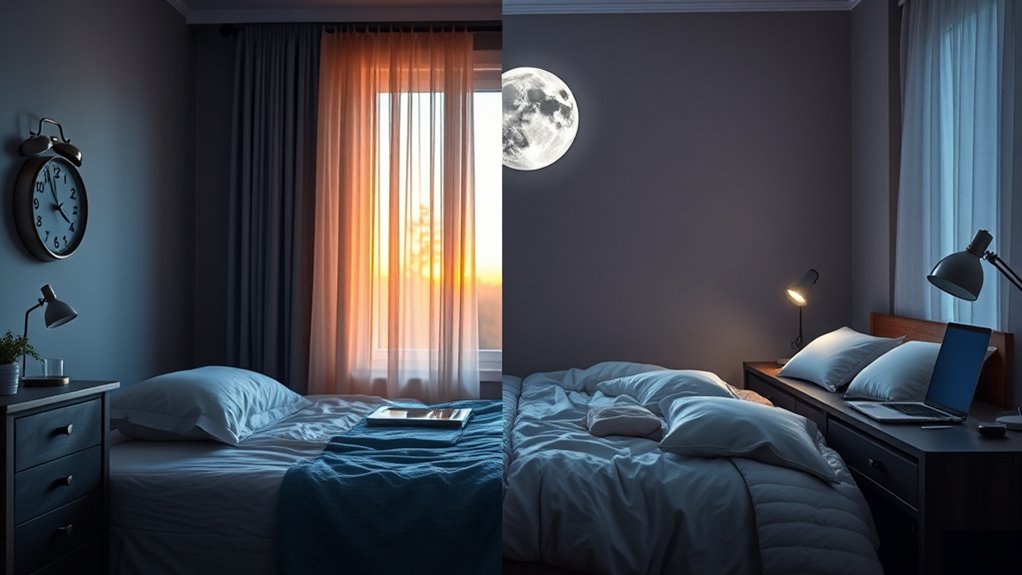
Your natural sleep pattern might seem fixed, but genetics play a big role in whether you’re a night owl or a morning lark. However, research shows you can shift your habits with some effort and consistency. So, your sleep schedule isn’t set in stone—it’s more flexible than you might think. Incorporating consistent routines can help realign your internal clock over time.
Genetic Influences on Sleep
Genetic factors play a significant role in shaping your sleep preferences, influencing whether you’re naturally inclined to be a night owl or a morning lark. Your genetic predisposition determines these tendencies through inherited sleep patterns passed down from your parents. Studies show that certain genes influence your internal body clock, affecting your natural sleep-wake cycle. This means some people are biologically wired to feel more alert in the evening, while others wake up early and feel most energized in the morning. While environment and lifestyle can modify sleep habits, your genetic makeup provides a foundation that makes these patterns somewhat fixed. Understanding this helps you accept your natural tendencies and work with your biology to optimize your sleep, rather than fighting against it. Recognizing the internal body clock can help you develop better sleep routines aligned with your genetics.
Flexibility in Sleep Habits
While genetics set a foundation for your sleep tendencies, there’s often room for flexibility in your sleep schedule. Your sleep routine can adapt with intentional changes, allowing you to shift your bedtime or wake time gradually. This flexibility helps accommodate work schedules or lifestyle shifts, challenging the myth that you’re stuck as a night owl or morning lark. Recognizing your mindset & confidence around sleep adjustments can significantly impact your ability to successfully modify your habits.

Anti-Snore Device, Stop Snoring – Comfortable Snore Mouthpiece, Snoring Solution for Man-KM05
COMFORTABLE & ADJUSTABLE: Anti-Snore mouthpiece is extremely comfortable for both men and women.
As an affiliate, we earn on qualifying purchases.
As an affiliate, we earn on qualifying purchases.
Sleep Supplements Are a Quick Fix
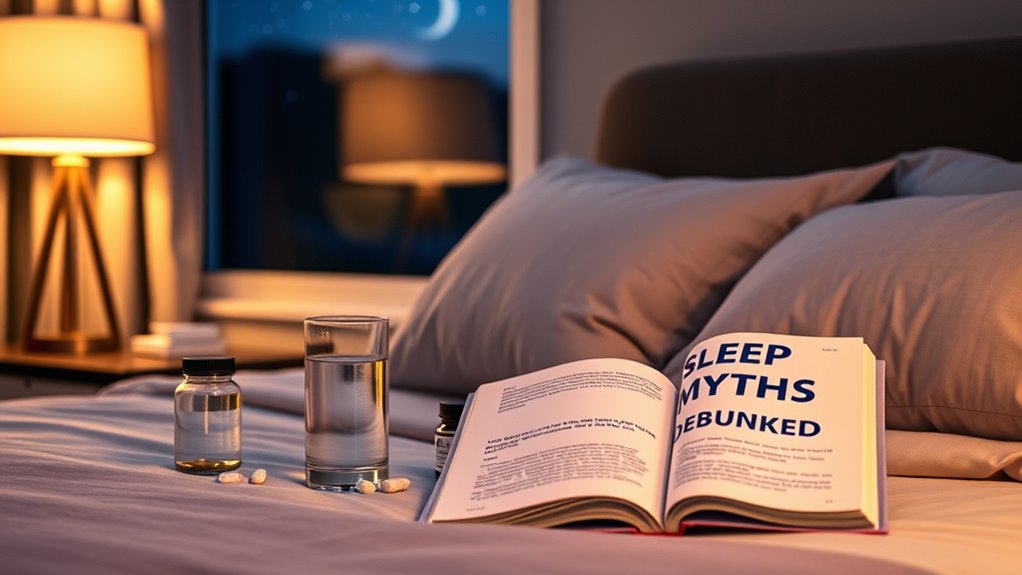
Many people turn to sleep supplements expecting a quick and easy solution to their sleep problems, but these products often fall short of delivering lasting results. The perceived effectiveness may be fueled by placebo effects, where your mind believes the supplement works even if it doesn’t. Additionally, supplement regulations vary widely, meaning some products lack proper oversight, quality control, or proven ingredients. This can lead to inconsistent results or potential health risks. Relying solely on supplements might mask underlying issues like stress or poor sleep habits, rather than addressing them. Instead of seeking a quick fix, focus on establishing healthy sleep routines and consulting healthcare professionals for personalized advice. Sleep supplements should be viewed as a short-term aid, not a permanent solution. Sleep hygiene practices and a consistent bedtime routine are essential components of sustainable sleep health.
More Sleep Is Always Better
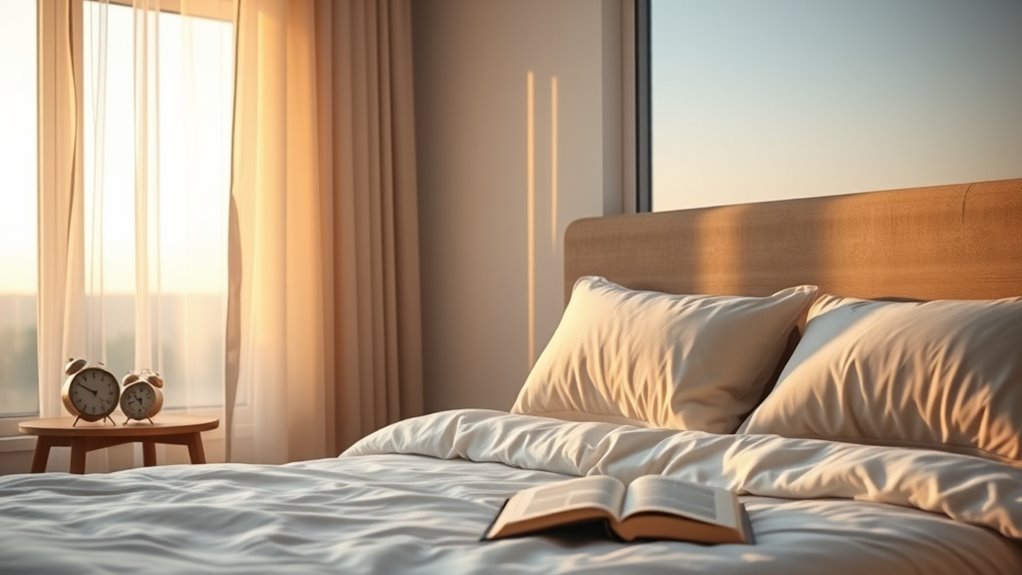
Believing that more sleep always leads to better health can be misleading. While adequate sleep duration is essential, oversleeping doesn’t necessarily boost your well-being. Too much rest can sometimes interfere with your sleep recovery process, leaving you feeling groggy or tired. Your body needs a balanced amount of sleep to properly restore and repair itself. Excessive sleep might signal underlying health issues or disrupt your natural sleep-wake cycle. Instead of aiming for more sleep, focus on getting consistent, quality rest tailored to your individual needs. Prioritize a regular sleep schedule and listen to your body’s cues. Remember, sleep efficiency and proper rest recovery are more important than simply increasing sleep hours beyond what your body requires.
Alcohol Helps You Sleep Better

Alcohol may initially make you feel sleepy, but it doesn’t improve your overall sleep quality. While alcohol and relaxation often go hand in hand, that calming effect doesn’t mean better sleep. Instead, alcohol can disrupt your sleep cycle, especially affecting REM sleep—the restorative stage vital for memory and mood. You might find yourself falling asleep faster, but your sleep becomes fragmented and less restorative as the night progresses. This disruption leads to waking up feeling less refreshed, not more rested. Relying on alcohol to help you sleep can create a false sense of relaxation, masking underlying sleep issues. Additionally, alcohol can interfere with your body’s natural sleep regulation processes, making it harder to achieve deep, restorative sleep. Ultimately, alcohol hampers your ability to experience deep, continuous sleep, leaving you tired and less alert during the day.
Sleep Disrupts Weight Loss

While alcohol might seem like a quick fix for sleep troubles, poor sleep can actually hinder your weight loss efforts. When you don’t get enough restful sleep, your hormonal regulation gets thrown off, specifically hormones like leptin and ghrelin that control hunger and fullness. This imbalance can lead to increased appetite and cravings for high-calorie foods. Additionally, insufficient sleep reduces your metabolic rate, meaning your body burns fewer calories throughout the day. Over time, these effects make it harder to lose weight or even cause weight gain, despite diet or exercise efforts. Retail hours are important to consider when planning your evenings so you can prioritize sleep routines that support your health goals. Prioritizing quality sleep helps maintain proper hormonal regulation and keeps your metabolic rate functioning ideally, supporting your weight loss goals rather than sabotaging them.
Snoring and Sleep Apnea Are Just Annoyances
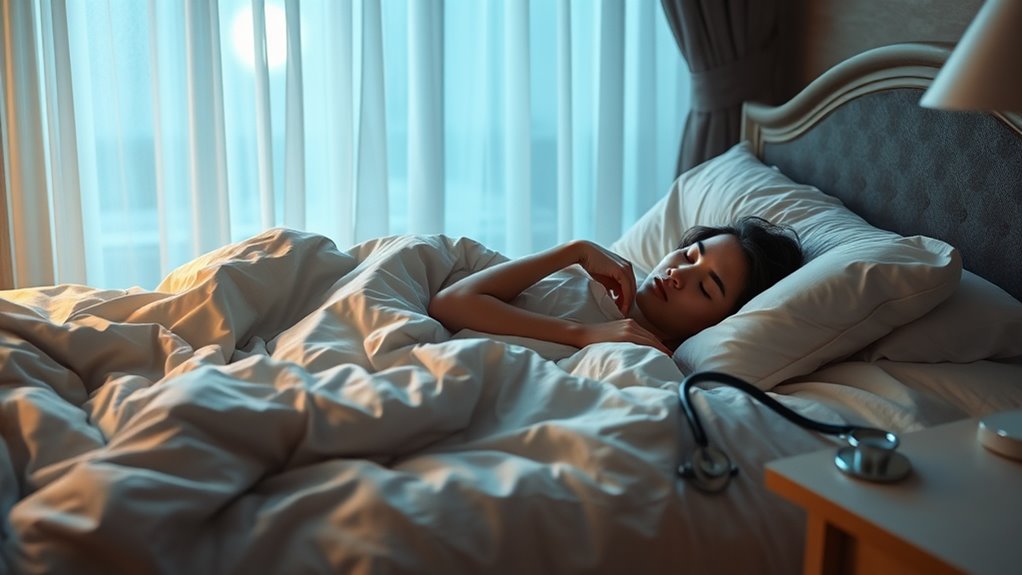
Many people dismiss snoring and sleep apnea as mere annoyances, but they can pose serious health risks. Untreated, sleep apnea increases your chances of high blood pressure, heart problems, and daytime fatigue. Luckily, effective treatment options are available to help you breathe easier and improve your overall health. Advances in Automated Healthcare technology are also contributing to better diagnostic tools and personalized treatment plans for sleep disorders.
Health Risks Involved
Snoring and sleep apnea aren’t just harmless nuisances; they can pose serious health risks if left untreated. Sleep deprivation caused by disrupted breathing can lead to fatigue, impaired focus, and mood swings. More critically, untreated sleep apnea affects your cardiovascular health by increasing blood pressure and straining your heart. Over time, this can raise your risk of heart disease, stroke, and other complications. Ignoring these issues might seem convenient, but it can have long-term consequences. Be aware of the risks and don’t dismiss snoring as just an annoyance. Addressing sleep issues early can markedly reduce health hazards. Regular monitoring and proper diagnosis are essential components of effective treatment plans for sleep disorders.
Treatment Options Available
Are snoring and sleep apnea truly just annoyances? Not necessarily. These issues can considerably affect your health and quality of life. Fortunately, several treatment options are available. Medication options, such as nasal sprays or oral devices, can help reduce symptoms and improve airflow. Behavioral therapies, like sleep position training or weight management, can also make a difference. For more severe cases, your doctor might recommend continuous positive airway pressure (CPAP) therapy or surgical procedures. It’s essential to address these conditions proactively, as untreated sleep apnea can lead to serious health risks. Combining medication options with behavioral therapies often yields the best results. Additionally, understanding sleep disorder treatments can help you explore the most effective options for your situation. Talk to your healthcare provider to determine the most effective treatment plan tailored to your needs.
Sleep Quality Doesn’t Matter as Long as You Spend Enough Time in Bed

Simply spending enough time in bed doesn’t guarantee you’ll get restful sleep. Sleep duration is important, but sleep quality matters just as much. If your sleep is fragmented or shallow, you won’t wake up refreshed, regardless of how long you stay in bed. Poor sleep quality can result from inconsistent bed time routines, stress, or disruptions in your sleep environment. To improve, focus on establishing consistent routines that signal your body it’s time to wind down. Avoid caffeine or screens before bed, and create a comfortable sleep space. Remember, quality sleep helps you feel energized and alert, even if you’re in bed the recommended hours. Prioritizing sleep quality is essential for true rest and overall health. Incorporating protective styling benefits like crochet techniques can also help create a more restful sleep environment by minimizing hair manipulation and discomfort.
Frequently Asked Questions
How Does Genetics Influence Individual Sleep Needs?
Genetics play a significant role in shaping your sleep needs through genetic predispositions and sleep gene variations. You might find that some people naturally require less sleep due to these variations, while others need more to feel rested. By understanding your genetic makeup, you can better tailor your sleep schedule. Recognizing how your genes influence sleep helps you optimize rest and improve overall health.
Can Daytime Naps Fully Replace Nighttime Sleep?
You might wonder if daytime naps can fully replace nighttime sleep. While consistent napping and appropriate nap duration can boost alertness, they don’t provide the same restorative benefits as a full night’s sleep. Relying solely on naps can disrupt your sleep cycle and affect overall health. For ideal rest, aim for a consistent sleep schedule at night, complemented by short, well-timed naps when needed.
What Role Does Sleep Environment Play in Sleep Quality?
Your sleep environment substantially impacts your sleep quality by creating ideal conditions for rest. A comfortable, dark, quiet, and cool space promotes better sleep hygiene, helping you fall asleep faster and stay asleep longer. When you prioritize your sleep environment, you improve your sleep hygiene, enhance your overall rest, and wake up refreshed. Focus on your sleep environment, and you’ll experience more restorative sleep every night.
Are There Long-Term Health Risks From Chronic Sleep Deprivation?
Chronic sleep deprivation can pose serious long-term health risks, including increased chances of sleep disorders like insomnia and sleep apnea. You might also find yourself relying on sleep supplements to help, but they aren’t a cure-all. Over time, lack of quality rest can lead to issues like heart disease, diabetes, and weakened immunity. Prioritizing good sleep habits is essential to protect your health and avoid these dangerous consequences.
How Do Age and Health Conditions Affect Sleep Requirements?
Imagine your sleep needs as a shifting landscape—age and health conditions transform what you require. As you grow older, age-related changes can decrease your sleep quality and duration, while certain health impacts may increase your need for restful recovery. You might find yourself needing more or less sleep depending on your health status. Recognizing these factors helps you tailor your sleep habits, ensuring you get restorative rest at any age.
Conclusion
Don’t let sleep myths cloud your nights. Imagine your rest as a gentle river, flowing smoothly when you honor your true needs. Forget rigid rules and quick fixes—trust what makes you feel refreshed. As you drift into peaceful, restorative sleep, know that understanding your unique rhythm creates a sanctuary of true rest. Embrace the truth about sleep, and wake up ready to face each day with clarity and energy.
